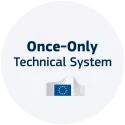The eID Building Block allows public administrations and private service providers to easily extend the use of their online services to citizens from other Member States, in line with the eIDAS Regulation.
In the digital age, public administrations and businesses need to carry out fast, secure electronic transactions and validate the identities of those involved with the same legal validity as traditional paper processes. Electronic identification (eID) makes this possible.
The eIDAS Regulation regulates such authentication and trust services in Europe, stipulating they they must be interoperable (work across borders). The eID Building Block helps achieve this by supporting Member States in the roll-out of the eIDAS Network, the technical infrastructure which connects national eID schemes to one another through eIDAS interoperativity nodes.
The eID Building Block engages in the following activities:
- helping Member States to build eIDAS interoperativity nodes (connected to the eIDAS network)
- helping public and private entities connect their digital services to these eIDAS nodes
- helping add new attributes (such as academic credentials) to an eID scheme
Becoming eIDAS compliant with the eID Building Block has the following advantages:
- Interoperability: Ensures that people and businesses can use their national eID schemes to access public services in other EU countries
- Trust: Provides and ensures legal validity of transactions across borders and same legal status as traditional paper based processes
- Security: Levels of Assurance (LoA) of eID schemes under eIDAS lower the risk of identity theft and misuse of personal information.







